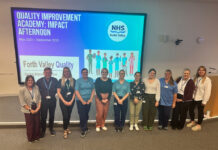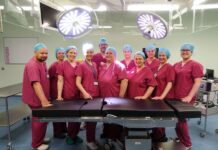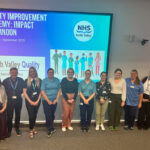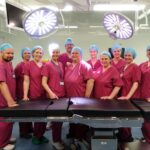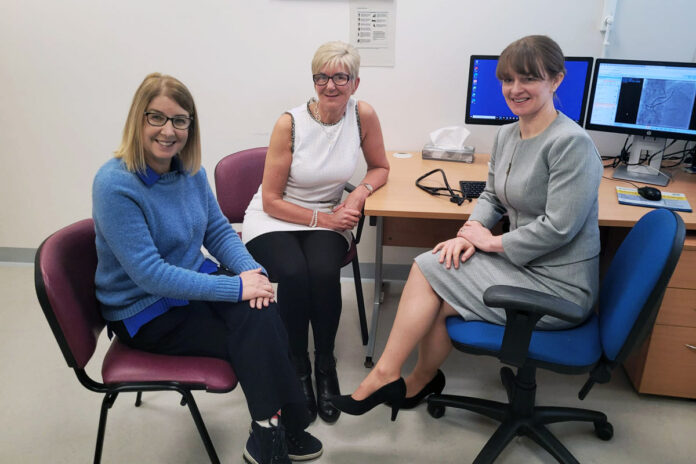
A new specialist heart clinic is being piloted at Forth Valley Royal Hospital in a bid to improve treatment of a cardiac condition which mainly affects women.
The clinic aims to improve treatment for patients with a condition called Spontaneous Coronary Artery Dissection (SCAD). Patients with SCAD first present with a heart attack, only later finding out that the cause is a bit different compared with many heart attacks.
SCAD most commonly affects women in their 40s and 50s, though it can occur at any age and also affect men. Those affected are often healthy, fit individuals and may not have the common risk factors for heart disease, such as high blood pressure and cholesterol or diabetes.
The new clinic is being trialled over a two-year period with the support of a number of leading researchers and clinicians: Dr Dave Adlam, a cardiologist and leading UK expert on SCAD who runs a UK-wide clinic in Leicester previously treating many SCAD patients who travelled from Scotland for his expertise. Professor Lis Neubeck from Edinburgh Napier University’s Centre for Cardiovascular Health, whose research with SCAD survivors helped illustrate the need for a new SCAD clinic in Scotland.
Dr Anne Scott, a Consultant Cardiologist at Forth Valley Royal Hospital, is running the new monthly SCAD clinics with her colleague Dr Claire Murphy and Dr Dave Adlam for the first year of the pilot. In the second year, Dr Scott and Dr Murphy will run the clinics with ongoing virtual support from Dr Adlam. Professor Neubeck is an expert in cardiac rehabilitation. Prof Neubeck will be working with rehabilitation teams across Scotland to support improvements in rehabilitation services, informed by research carried out with patients who have suffered SCAD.
It is estimated that around 50 people a year in Scotland will experience a heart attack caused by SCAD, many of them younger women with no previous health issues.
Dr Anne Scott, Consultant Cardiologist at Forth Valley Royal Hospital, said: “The pilot clinics have been up and running for a few months and we are starting to see referrals coming through from cardiology colleagues across Scotland, including as far afield as Orkney.
“The feedback from patients attending so far has been really positive and we are hoping that that the pilot will lead to greater understanding of this condition and better outcomes for the people affected.
Jackie Turnball, from Camelon in Falkirk, was one of the first patients to attend the new SCAD clinic and found it really helpful in helping her to manage ongoing symptoms and achieve some of her personal goals. She explained: “I was a really fit and healthy individual and had actually run a half marathon just two days before I experienced my heart attack in November 2022.
“The specialist advice and support I have received from Dr Scott and her colleagues has increased my confidence and knowledge of what do if I start to feel unwell and helped me to get back to doing some of the activities I really enjoy. I might not be up to running half marathons, but I am managing to run 10k which is great.”
Lis Neubeck, Professor of Cardiovascular Health and Head of the Centre for Cardiovascular Health Research at Edinburgh Napier University said: “I’m delighted that we have been able to develop this pilot service for SCAD survivors in Scotland.
“Our work with SCAD survivors highlighted the physical and psychological challenges they face following a SCAD diagnosis and this service will help to give then the support they need to recover.”
Dr Dave Adlam, said: “I am enormously excited that we are now able to offer a dedicated service for patients with SCAD in Scotland. We hope, over time, that the clinic at Forth Valley Royal Hospital will transform access to the very best care for both SCAD patients and clinical staff involved in their care.”

